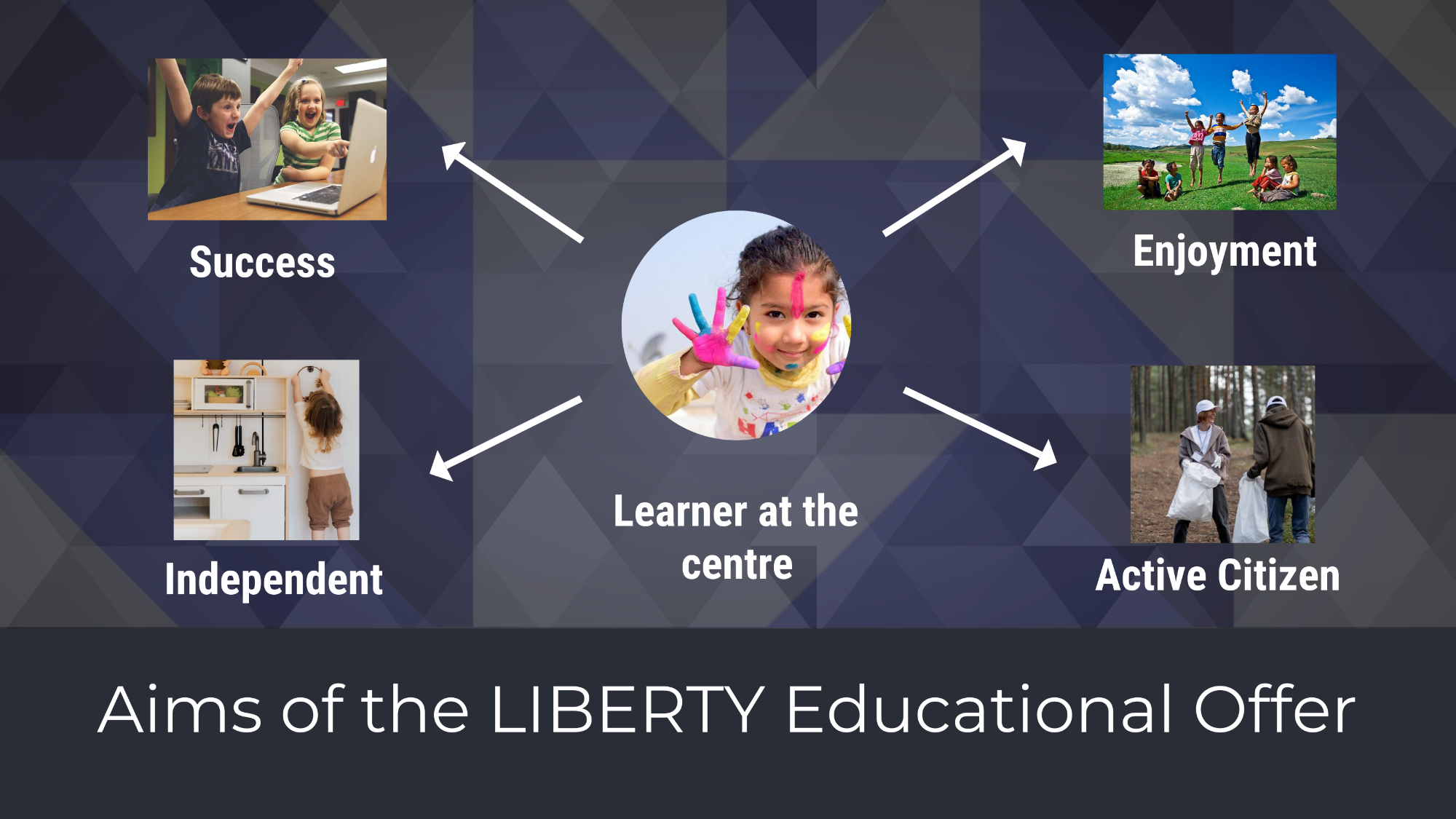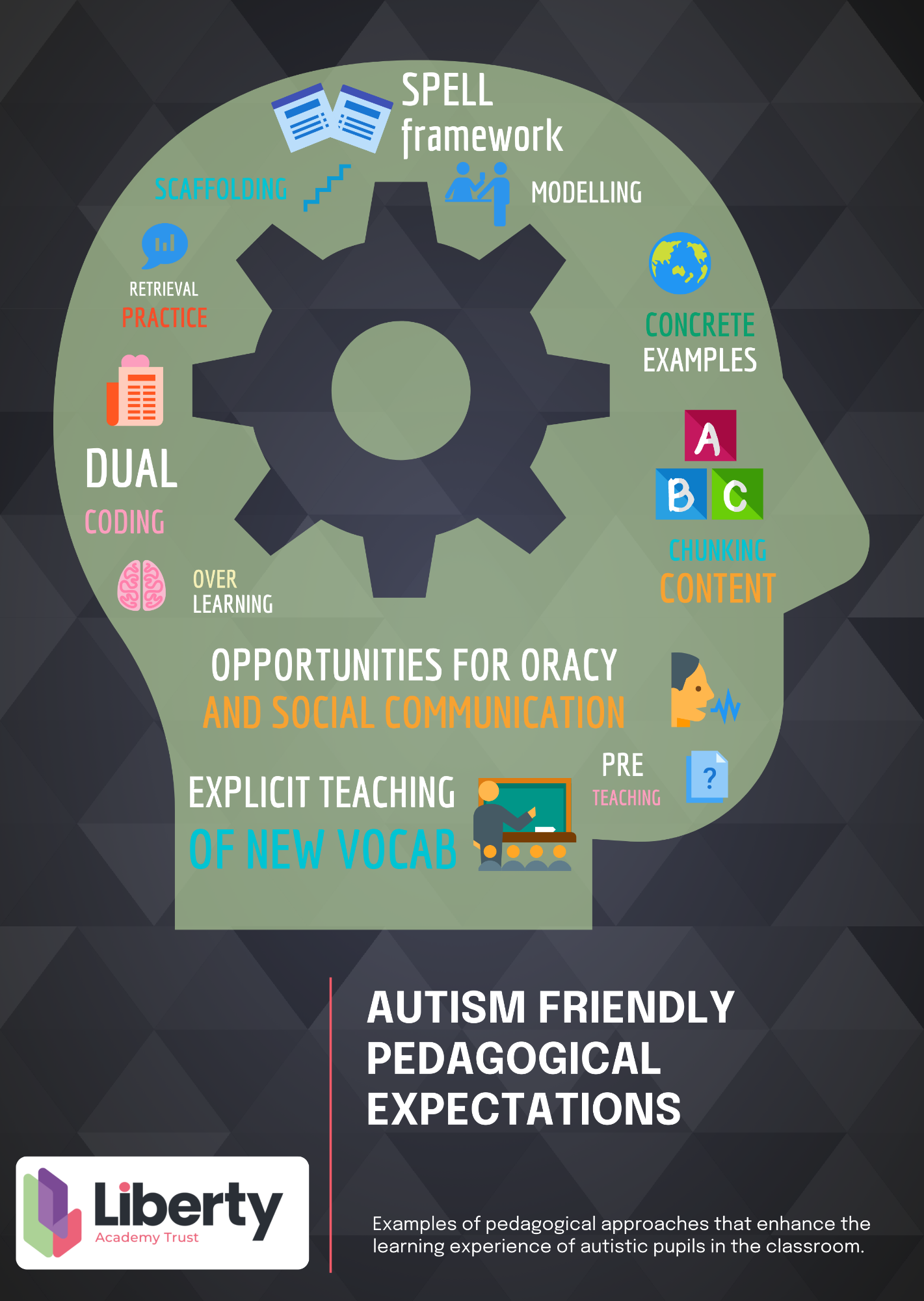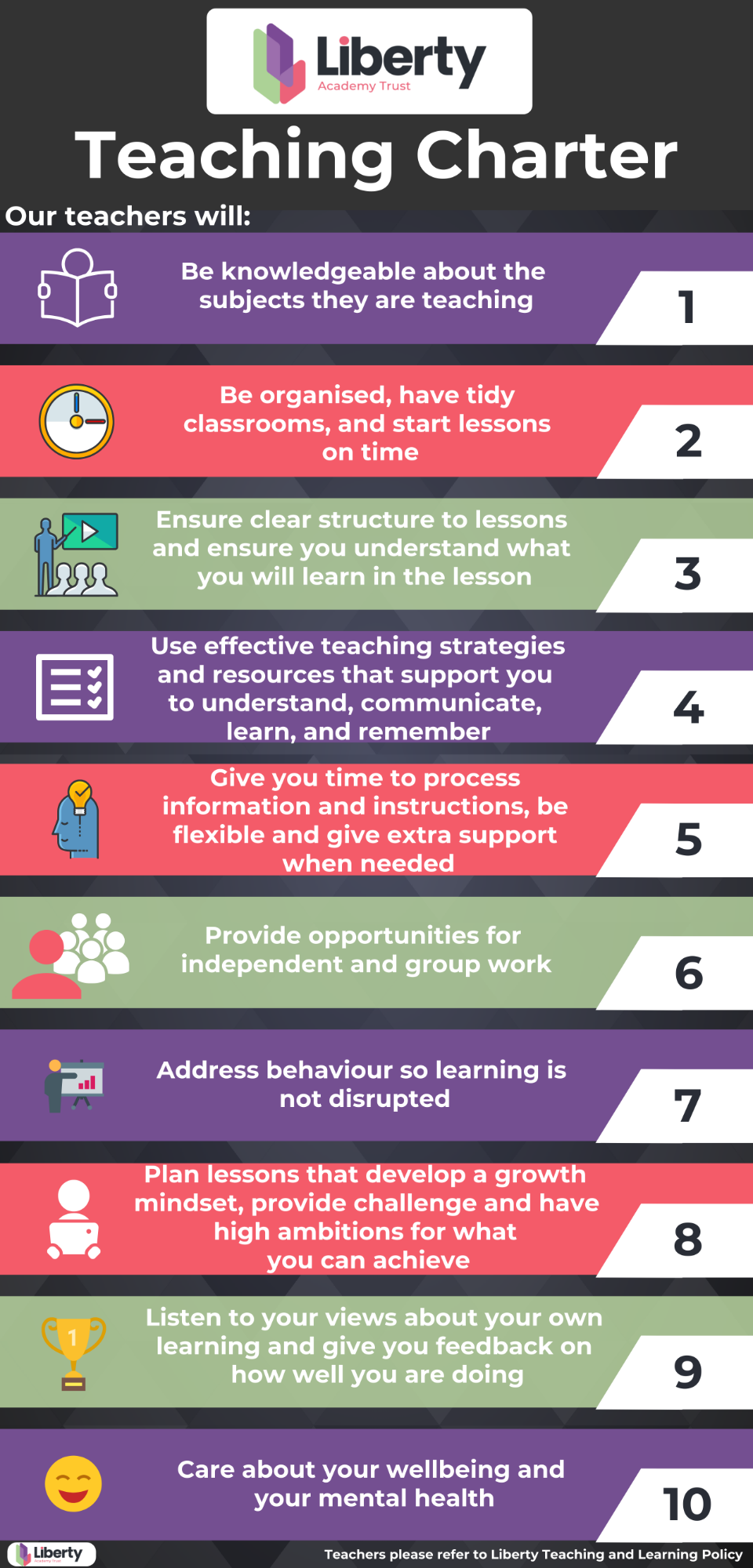Teaching and Learning
Aims of the Liberty Educational Offer
The aims of the Liberty educational offer are to:
- Develop successful learners, who enjoy learning and who progress and achieve well, from their starting points;
- Develop independent individuals, who are able to live safe, healthy and fulfilling lives; and
- Develop active citizens who make a positive contribution to society, based on their capabilities.
In achieving these aims, we rely on the professional judgement of teachers to accurately assess the prior learning of pupils, understand the learning potential of individuals, and teach within the zone of proximal development[1] in order to capitalise on the learning time available.
Of course, the most effective way to improve standards and raise attainment, is to improve teaching and learning; we therefore support the development of teaching and learning across the Trust, through an understanding of how children learn and a summary of effective pedagogical approaches designed to support accelerated learning for autistic pupils.

Pedagogy into Practice – Expectations for Teachers
“Good teaching makes a difference. Excellent teaching can transform lives.”
(Cambridge Primary Review, 2010, p.279)
The Structured Learning Environment
We are all ‘creatures of habit’ and all pupils, including those who are autistic, will benefit from consistent routines, as this provides the security of familiarity and therefore reduce feelings of anxiety.
All teachers and non-teaching colleagues are expected to adhere to the SPELL framework, which reflects the minimum expectations of practice:
- Structure and clarity;
- Positive approaches and high expectations;
- Empathy and understanding of the individual;
- Low arousal environments; and
- Links to support networks and signposting.
Adapted from Beadle-Brown and Mills, 2018
The SPELL framework reflects a person-centred approach designed to support high engagement in learning and underpins our approach to the Liberty educational offer which aims to achieve: enjoyment; success; independence; and the promotion of future active citizenship.
We understand that engagement in learning can be more challenging for autistic learners and so we take time to consider the best pedagogical approaches that will help all learners achieve success from starting points and which develops their love of learning through life. Attention and memory can be different in autistic individuals; some autistic learners may have an amazing ability to recall specific details over long periods of time, however, working memory, or the ability to process several pieces of information at the same time, is often impaired. (Mesibov, 2016, p. 7) It is therefore important that our teaching practice enhances the learning opportunities for pupils.

Our Teaching Charter
We know that high-quality teaching is the best indicator of success for all learners - but particularly for learners with SEND. As a result, our Teaching Charter highlights our commitment to this and illustrates our minimum expectations.

[1] Zone of Proximal Development (Vygotsky)
